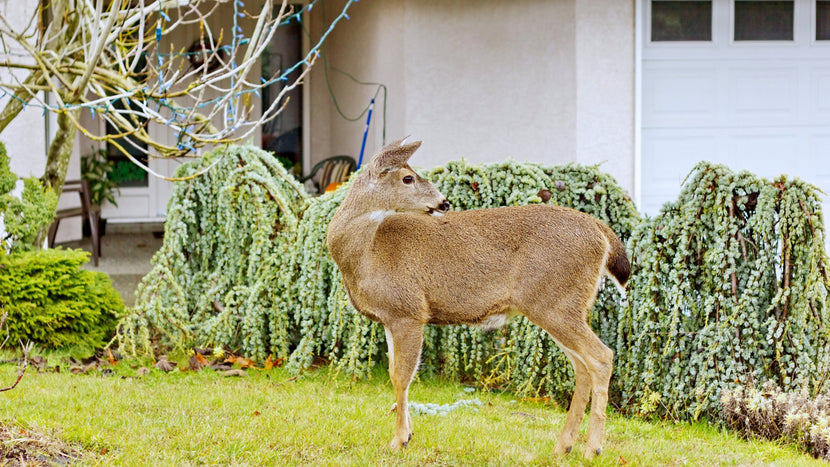
3 Factors That Contribute to Deer-Resistance in Shrubs
As a seasoned nursery professional, I'm well aware of the challenges that deer can pose to a beautiful garden. You're not alone if you've ever witnessed your prized shrubs devoured by these gentle yet voracious creatures.
Fortunately, there are steps you can take to safeguard your landscape. One effective approach is selecting deer-resistant shrubs. In this blog, we'll explore the factors that make shrubs deer-resistant and highlight some excellent choices for your garden
Deer-Resistance Factors
There are various factors of shrubs that contribute to their ability to deter those pesky woodland creatures who are always snacking on your landscape! It is essential that you incorporate a range of these different factors to your yard to successfully keep deer at bay.
1. Aromatic Foliage
Deer possess highly sensitive noses, and they rely heavily on their sense of smell to locate food. Shrubs with aromatic foliage tend to deter deer because their strong scents are unappealing to these animals. Examples of shrubs with aromatic leaves include:
Russian Sage (Perovskia atriplicifolia): This woody perennial produces fragrant, silvery-gray foliage that deer typically avoid.
Rosemary (Rosmarinus officinalis): Known for its aromatic, needle-like leaves, rosemary is an excellent deer-resistant choice.
Fragrant Sumac (Rhus aromatica): The leaves of this native shrub release a pleasant fragrance when crushed, helping deter deer.

2. Texture and Leaf Type
Shrubs with tough, leathery leaves or those featuring spines, thorns, or prickly hairs are less appealing to deer. These textures make it uncomfortable for deer to browse. Some examples include:
Barberry (Berberis spp.): With its spiny branches and colorful foliage, barberry is an excellent choice for deer resistance.
Mahonia (Mahonia spp.): Mahonia shrubs are characterized by their holly-like leaves, which feature prickly points, deterring deer.
3. Toxic or Bitter Compounds
Some shrubs produce toxins or bitter-tasting compounds as a defense mechanism. These chemicals can make the shrubs unpalatable to deer. Examples of shrubs with such attributes include:
Boxwood (Buxus spp.): Boxwoods contain alkaloids that give them a bitter taste, making them less appealing to deer.
Yew (Taxus spp.): Yews are known for their toxicity, which deters deer from feeding on them.

Native Deer-Resistant Plant Species
Shrubs that are native to your region have evolved alongside local wildlife, including deer. They often possess natural defenses that make them less appealing to browsing animals. Consider planting native shrubs like:
American Beautyberry (Callicarpa americana): This native shrub produces clusters of colorful berries in late summer and fall, deterring deer.
Ninebark (Physocarpus spp.): Native to North America, ninebark shrubs have unique peeling bark and offer good deer resistance.
Drought-Tolerant, Deer-Resistant Plant Varieties
Shrubs adapted to drought conditions often develop tough, leathery leaves or produce chemicals that discourage deer browsing. Drought-tolerant options include:
Dwarf Fothergilla (Fothergilla gardenii): This shrub has attractive, fragrant foliage and is known for its resistance to deer.
Juniper (Juniperus spp.): Many juniper varieties are drought-tolerant and less appealing to deer.
Planting Tips
Where you plant your shrubs can also influence their deer resistance. Placing deer-resistant shrubs along the perimeter of your yard and the varieties favored by deer closer to your home or more accessible areas of your garden can help protect more vulnerable plants.
For more in-depth planting steps be sure to checkout our planting guides!

Shop Deer-Resistant Shrubs Online Today
By considering these factors and selecting the right shrubs for your landscape, you can significantly reduce the risk of deer damage. A thoughtfully designed garden that incorporates deer-resistant shrubs enhances your property's beauty and provides peace of mind. Happy planting!
See you in the deer-less garden!
- Woodie
